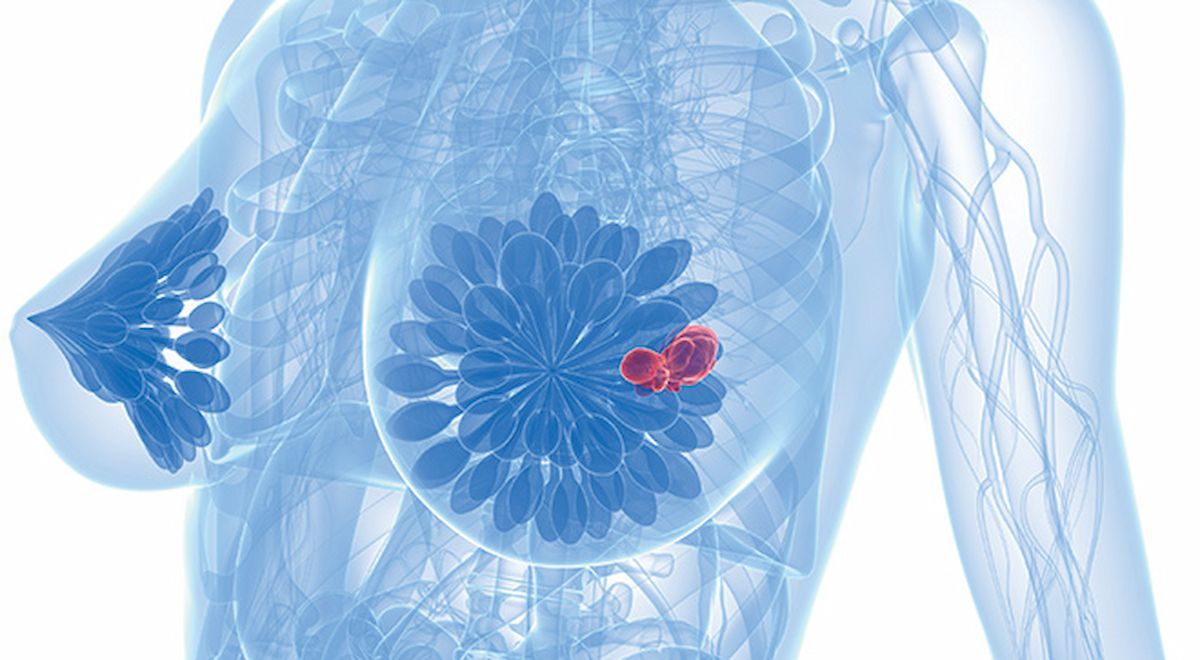Phase 3 Trial of Trilaciclib in Triple-Negative Breast Cancer Will Continue
The final overall survival analysis of trilaciclib plus chemotherapy in patients with metastatic triple-negative breast cancer as part of the PRESERVE 2 trial will take place in the third quarter of 2024.
Post hoc analysis findings from a phase 2 trial (NCT02978716) assessing trilaciclib plus gemcitabine/carboplatin in patients with metastatic TNBC were previously presented during a poster session at the 2023 San Antonio Breast Cancer Symposium (SABCS).

An independent data monitoring committee (IDMC) has recommended that investigators continue their assessment of frontline trilaciclib (Cosela) plus gemcitabine/carboplatin in metastatic triple-negative breast cancer (TNBC) as part of the phase 3 PRESERVE 2 trial (NCT04799249), according to a press release from G1 Therapeutics, Inc.1
A final analysis of overall survival (OS) data among the intent-to-treat (ITT) population in the PRESERVE 2 trial is anticipated in the third quarter of 2024. Additionally, the IDMC did not highlight any issues related to safety or suggest any changes to the trial’s design. Developers remain blinded to the trial data due to early stopping criteria not being reached during the interim analysis.
“We remain confident in the ability of trilaciclib to ultimately achieve the OS primary endpoint based on the robust survival benefit demonstrated in the prior randomized phase 2 study [NCT02978716], which continued to meaningfully increase over time as patients received subsequent therapies, as well as the increased statistical power for the final analysis of this pivotal study,” Jack Bailey, chief executive officer at G1 Therapeutics, said in the press release. “While a positive interim analysis would have enabled us to bring this therapy to patients in need sooner, we look forward to completing the study and potentially making this meaningful new treatment option available to patients with this highly aggressive form of breast cancer as early as next year.”
Post hoc analysis findings from the phase 2 trial assessing trilaciclib plus gemcitabine/carboplatin in patients with metastatic TNBC were previously presented during a poster session at the 2023 San Antonio Breast Cancer Symposium (SABCS).
Among patients who received subsequent anticancer therapy, the median OS was 32.7 months (95% CI, 15.3-not estimable [NE]) in those who received trilaciclib plus gemcitabine/carboplatin vs 12.8 months (95% CI, 8.3-17.8) for those who were treated with prior gemcitabine/carboplatin only (P = .001).2 Investigators highlighted that median OS and progression-free survival (PFS) improved in the trilaciclib arm regardless of the type of subsequent anticancer treatment that patients received. Additionally, the median OS relative to the time since initiation of subsequent anticancer treatment was 14.0 months (95% CI, 9.0-NE) in the trilaciclib arm compared with 5.8 months (95% CI, 4.8-7.2) among those who received prior gemcitabine/carboplatin only.
“Data from the randomized phase 2 trial suggest that patients with [metastatic] TNBC who received trilaciclib prior to cytotoxic chemotherapy have prolonged survival, which is notably improved for patients who receive any [subsequent anticancer treatment] following discontinuation of trilaciclib,” lead study author Shom Goel, MD, of The Sir Peter MacCallum Department of Oncology, University of Melbourne in Melbourne, Australia, and coinvestigators wrote in the poster.2 “Improved OS in patients receiving trilaciclib may be associated with preservation of the lymphoid lineage and expanded memory T-cell pool, which is critical for long-term immune surveillance and in eliciting rapid recall responses.”
Investigators of the phase 2 trial randomly assigned patients 1:1:1 to receive gemcitabine/carboplatin on days 1 and 8 (n = 34), trilaciclib before gemcitabine/carboplatin on days 1 and 8 (n = 33), or trilaciclib alone on days 1 and 8 before gemcitabine/carboplatin on days 2 and 9 (n = 25).
The trial’s primary end points included duration of severe neutropenia and number of patients with severe neutropenia. Secondary end points included duration of response, OS, and PFS.
Patients 18 years and older with hormone receptor–negative, HER2-negative TNBC and an ECOG performance status of 0 or 1 were eligible for enrollment on the phase 2 trial. Patients were also required to have adequate organ function and a predicted life expectancy of at least 3 months.
References
- G1 Therapeutics to continue pivotal phase 3 trial of trilaciclib in metastatic triple negative breast cancer following interim analysis by independent data monitoring committee. News release. G1 Therapeutics. February 12, 2024. Accessed February 13, 2024. http://tinyurl.com/4x7nx62y
- Goel S, O’Shaughnessy J, Lu K, et al. Patients with metastatic triple-negative breast cancer who receive trilaciclib prior to cytotoxic chemotherapy exhibit improved overall survival after receiving subsequent anticancer therapy. Presented at the 2023 San Antonio Breast Cancer Symposium; December 5-9, 2023; San Antonio, TX; abstract P02-06-12.